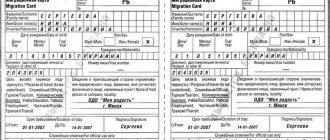As is known, when carrying out the retail sale of alcoholic beverages, including within the framework of the provision of public catering services, it is necessary to take into account the prohibitions and restrictions established by the Federal Law of November 22, 1995 No. 171-FZ “On state regulation of the production and circulation of ethyl alcohol, alcoholic and alcohol-containing products and on limiting the consumption (drinking) of alcoholic products.” We wrote about them in the articles “Forbidden alcohol when providing catering services” (No. 7, 2015), “Special requirements for a stationary retail facility when selling alcohol” (No. 8, 2015). At the same time, in addition to the prohibitions and restrictions provided directly at the federal level, government bodies of the constituent entities of the Russian Federation are vested with the right to establish additional restrictions regarding the retail sale of alcohol. Let's find out whether regional authorities have the right to introduce any restrictions and prohibitions and whether they can affect persons selling alcoholic products when providing catering services.
The norm that gives the regional authorities a free hand literally reads like this (this is paragraph 2, paragraph 5, article 16 of Federal Law No. 171-FZ).
State authorities of the constituent entities of the Russian Federation have the right to establish additional restrictions on the time, conditions and places of retail sale of alcoholic products, including a complete ban on the retail sale of alcoholic products.
The addition must be introduced by the relevant authority
As the Plenum of the Supreme Arbitration Court explained in paragraph 12 of Resolution No. 47 dated July 11, 2014, relevant acts on the introduction of additional restrictions on alcohol can only be adopted by legislative (representative) bodies of state power of the constituent entities of the Russian Federation, since this establishes restrictions on civil rights in the sphere of economic turnover. The FAS, in turn, added that additional “alcohol” restrictions are often introduced by local governments, which does not comply with current legislation (Letter No. AK/55277/14 dated December 31, 2014). In this regard, restrictions imposed by the wrong body are not taken into account by judges. Let's give examples.
÷>
The establishment of additional restrictions on the time of retail sale of alcoholic beverages by Decree of the Government of the Republic of Tyva dated February 21, 2012 No. 96, which is an executive body of state power, does not comply with the provisions of federal legislation. The arguments of the applicant of the cassation appeal about the delegation to the Government of the Republic of Tyva of powers regarding limiting the time for the sale of alcoholic products cannot be taken into account, since they contradict the explanations contained in paragraph 12 of the Resolution of the Plenum of the Supreme Arbitration Court of the Russian Federation No. 47 (Resolution of the Supreme Arbitration Court of the Russian Federation dated June 22, 2015 No. F02-2621/2015 in case No. A69-3106/2014).
The establishment of an additional time limit for the retail sale of alcoholic beverages by the Decree of the President of the Republic of Sakha (Yakutia), that is, a by-law normative legal act, contradicts the provisions of federal legislation (FAS VSO Resolution of July 29, 2014 No. F02-2465/2014 in case No. A58-7168/2013) .
Age limit
Clause 2 of Art.
16 of Federal Law No. 171-FZ prohibits the retail sale of alcoholic beverages to minors (that is, persons under 18 years of age - clause 1 of Article 21 of the Civil Code of the Russian Federation). Can regional authorities raise the age limit for those allowed to sell alcohol? This is exactly the norm contained in paragraphs. 1 clause 1 art. 7 of the Law of the Republic of Mordovia dated April 16, 2015 No. 18-Z “On state regulation of retail turnover of alcoholic products in the territory of the Republic of Mordovia”: in the territory of the Republic of Mordovia, retail sales of alcoholic products to persons under 21 years of age are not allowed. The Supreme Court of the Russian Federation supported the judges who decided to recognize this norm as invalid as not complying with federal law. Establishing an age limit for the buyer of alcoholic products is the prerogative of the federal legislator and does not fall within the powers of state authorities of the constituent entities of the Russian Federation. The chief arbitrator emphasized: the contested provision introduces a restriction of civil rights in the sphere of economic turnover, which contradicts paragraph. 2 p. 2 art. 1 of the Civil Code of the Russian Federation, according to which the basic principles of civil legislation and civil rights can be limited only on the basis of federal law. Currently, age restrictions to be applied in the field of retail sale of alcoholic beverages are established by federal law and can be changed, contrary to the arguments of the appeal, only on the basis of federal law (Appeal ruling of the Armed Forces of the Russian Federation dated December 9, 2015 No. 15-APG15-4).
At what age can you sell alcohol in Russia in 2021?
Based on the following list of documents, a person can confirm his age:
- passport;
- international passport;
- temporary certificate;
- seaman's certificate;
- diplomatic papers;
- view of permanent residence;
- refugee certificate.
Childhood alcoholism is the scourge of the 21st century, so the authorities have launched a full-scale war against this leprosy, introducing bans on the sale of alcohol to underage teenagers. In addition, regional supervisory authorities have expanded their powers to control and prosecute illegal activities. The main point concerns the age at which you can buy alcohol in Russia.
Time limit
At the federal level (paragraph 1, clause 5, article 16 of Federal Law No. 171-FZ) there is a ban on the retail sale of alcoholic beverages from 23.00 to 8.00 local time, but it does not apply to everyone.
Thus, the group of exceptions includes organizations and individual entrepreneurs that sell alcohol when providing public catering services (remember, individual entrepreneurs have the right to engage in retail sales only of beer, beer drinks, cider, poire and mead). Regional authorities have the right to expand this temporary ban. But can they extend such a restriction to persons providing catering services? The Supreme Arbitrator shares the view that the provisions of paragraph 5 of Art. 16 of Federal Law No. 171-FZ grant a subject of the Russian Federation the right to establish additional restrictions on the time, conditions and places of retail sale of alcoholic beverages, including in the provision of public catering services (definitions dated July 22, 2015 No. 59-APG15-4, dated May 28, 2014 No. 31-APG14-2). Moreover, the Supreme Court of the Russian Federation finds it legitimate to introduce additional restrictions in relation to only certain types of catering establishments.
Thus, the Law of the Republic of Sakha (Yakutia) dated December 5, 2013 1248-Z No. 51-V “On establishing additional restrictions on the time, conditions and places of retail sale of alcoholic beverages in the Republic of Sakha (Yakutia)” enshrines a ban on the retail sale of alcoholic beverages from 20.00 to 14.00 local time. Organizations and individual entrepreneurs do not need to comply with this prohibition when providing public catering services, but provided that the catering establishment is of the “restaurant” type in accordance with GOST R 50762‑2007 “National Standard of the Russian Federation. Catering services. Classification of public catering establishments”[1] (the change about restaurants is valid from 08/01/2015).
The judges assessed that the establishment of additional restrictions on the sale of alcohol depending on the type of public catering establishment cannot be qualified as the creation of discriminatory conditions for business entities in the public catering sector, including eateries. A restaurant and a snack bar are different types of food service establishments. The ban on the sale of alcohol in a snack bar in the period from 20.00 to 14.00 local time and the absence of such a ban in relation to the restaurant, such as the exercise of the powers of a constituent entity of the Russian Federation in the field of legal regulation of alcohol circulation, do not violate the provisions of the Federal Law of July 26, 2007 No. 135-FZ “On the Protection of competition" (Determination of the Supreme Court of the Russian Federation dated November 25, 2015 No. 74-APG15-33).
Where can you read about the age at which you can buy alcohol?
(as amended by Federal Laws dated January 7, 1999 N 18-FZ, dated December 29, 2001 N 186-FZ, dated July 24, 2002 N 109-FZ, dated July 25, 2002 N 116-FZ, dated November 2, 2004 N 127-FZ , dated July 21, 2005 N 102-FZ (as amended on December 31, 2005), dated October 16, 2006 N 160-FZ, dated December 29, 2006 N 248-FZ, dated July 19, 2007 N 219-FZ, dated December 1, 2007 N 302 -FZ, as amended by the Resolution of the Constitutional Court of the Russian Federation dated November 12, 2003 N 17-P, Federal Laws dated July 26, 2006 N 134-FZ, dated April 20, 2007 N 55-FZ)
We recommend reading: How to sell a room in a communal apartment quickly
(approved by Decree of the Government of the Russian Federation of August 19, 1996 N 987) (as amended by November 16, 1996, July 14, 1997, October 13, 1999, November 2, 2000) by Decree of the Government of the Russian Federation of November 2, 2000 No. 840, paragraph 1 of these Rules is stated in a new edition
Alcohol to take away is prohibited
In practice, there are also quite often situations where regional authorities prohibit organizations providing catering services from carrying out retail sales of alcoholic beverages for takeaway (not for consumption at the point of purchase).
Example - clause 4, part 2, art. 3 of the Law of the Trans-Baikal Territory of December 26, 2011 No. 616-zzk [2] (introduced by the Law of the Trans-Baikal Territory of September 25, 2014 No. 1050-zzk), according to which organizations and individual entrepreneurs, when providing catering services, are prohibited from retail sale of alcoholic beverages unless take-out is ensured alcohol from 20.00 to 11.00 local time. It is also explained here: the take-out of alcoholic beverages means its movement outside the premises to serve consumers at a catering establishment. This provision became the subject of consideration in court, which considered that there were no contradictions between it and federal legislation. In turn, the Judicial Collegium for Administrative Cases of the Supreme Court of the Russian Federation found no reason to disagree with the conclusion of the trial court. At the same time, the arguments of the appellant that the contested provisions are impossible to implement without violating the constitutional rights of third parties, that the movement of the purchased alcoholic beverages by the client can be stopped either by preventing the buyer from leaving the premises or by confiscating them, are regarded as far-fetched. No law can be considered as a means aimed at violating the constitutional rights of citizens, unless required by federal law and only to the extent necessary in order to protect the foundations of the constitutional system, morality, health, rights and legitimate interests of other persons , ensuring the country's defense and state security. On the contrary, the obligation of an organization or individual entrepreneur, established by the contested law, when providing public catering services to ensure that alcoholic beverages are not taken out during the period of prohibition of their retail sale, implies the possibility of its implementation by any measures not prohibited by law (for example, by dispensing alcoholic beverages on tap, warning buyers about the prohibition of their removal outside the premises of a catering establishment) (Determination of the Supreme Court of the Russian Federation dated June 24, 2015 No. 72-APG15-4).
Another example is the Law of the Krasnodar Territory dated 06/04/2012 No. 2497-KZ “On establishing restrictions in the field of retail sales of alcoholic beverages and non-alcoholic tonic drinks”, paragraph 4 of Art. 4.1 of which prohibits the retail sale of alcoholic beverages for takeaway (not for consumption at the place of purchase), carried out by organizations when they provide public catering services. By decision of the Krasnodar Regional Court dated July 22, 2015 No. 3-141/2015, this norm was recognized as not contradicting Federal Law No. 171-FZ, and the Supreme Court of the Russian Federation considered this conclusion to be correct (Appeal ruling dated November 18, 2015 No. 18-APG15-34). Law of the Krasnodar Territory No. 2497-KZ was adopted in order to protect the health and morality of the population of the Krasnodar Territory within the powers granted to the constituent entity of the Russian Federation, in pursuance of the requirements of Federal Law No. 171-FZ. References in the appeal to the national standard of the Russian Federation GOST R 50762‑2007 cannot be taken into account, since the provisions contained therein do not relate to the sphere of public relations, which are subject to regulation by the said federal law.
At what age can you buy alcohol in different countries?
Many young people are faced with the problem of purchasing alcohol in stores and cafes. Moreover, sellers often name completely different ages of “alcoholic legal age,” which ranges from 18 to 21 years. It's time to find out at what age you can buy alcohol and, accordingly, drink it. Knowing the laws will help you protect your rights regarding alcoholic beverages. The legal age to purchase alcohol depends on your country of residence. In Russia you can buy alcohol from the age of 18. The “Rules for the Sale of Alcohol, Tobacco Products and Beer” prohibit the sale of alcoholic beverages only to minors, and adulthood in the Russian Federation begins at 18 years of age. So if you have a passport with you in the store confirming your majority, ask the sellers to sell you vodka, cognac, beer, wine or any other alcohol.
If they still do not agree, then I advise you to show them Article 426 of the Civil Code of the Russian Federation. Public contract. Where in the third paragraph it is clearly written: “the refusal of a commercial organization to conclude a public contract if there is an opportunity to provide the consumer with the corresponding goods, services, or perform the corresponding work for him is not allowed.” This is a public offer rule, and you will have to pay a fine for violating it.
True, legislative initiatives by Roszdravnadzor have recently appeared, which propose to ban the sale of alcohol to persons under 21 years of age. It is also planned to reduce the maximum alcohol content in low-alcohol drinks to 7% (currently 9%) and bottle them in packages of no more than 300 ml. But these are only proposals for now; they have not been confirmed by real laws, and it is unlikely that such laws will appear. So in Russia, like Ukraine, you can freely buy alcohol from the age of 18.
The age at which you can drink alcohol in other countries is shown in the following table.
| A country | Age of consumption at point of sale (cafes, bars, etc.) | Age of consumption outside the point of sale (in-store purchase) |
| Australia | 18 | 18 |
| Austria | 16/18 | 16/18 |
| Azerbaijan | 18 | 18 |
| Albania | is not limited | is not limited |
| Algeria | 18 | 18 |
| Argentina | 18 | 18 |
| Bahamas | 18 | 18 |
| Belarus | 18 | 18 |
| Belize | 18 | 18 |
| Belgium | 16 (beer, wine) 18 (strong alcohol) | unlimited (beer, wine)18 (strong alcohol) |
| Bulgaria | 18 | 18 |
| Bolivia | 18 | 18 |
| Botswana | 18 | 18 |
| Brazil | 18 | 18 |
| Brunei | alcohol is prohibited | alcohol is prohibited |
| Burundi | 18 | 18 |
| Hungary | 18 | 18 |
| Great Britain | 18 | 18 |
| Venezuela | 18 | 18 |
| Gabon | is not limited | is not limited |
| Guyana | 18 | 18 |
| Gambia | alcohol is prohibited | alcohol is prohibited |
| Ghana | is not limited | is not limited |
| Guatemala | 18 | 18 |
| Guinea-Bissau | is not limited | is not limited |
| Germany | 16 (beer and wine)18 (strong alcohol) | 16 (beer and wine)18 (strong alcohol) |
| Greece | 18 | is not limited |
| Georgia | 16 | 16 |
| Denmark | 18 | 16 |
| Dominican Republic | 18 | 18 |
| Egypt | 18 (beer)21 (wine and stronger) | 18 (beer)21 (wine and stronger) |
| Zambia | 18 | 18 |
| Zimbabwe | 18 | 18 |
| India | from 18 to 25 (depending on state) | from 18 to 25 (depending on state) |
| Israel | 18 | 18 |
| Indonesia | 21 | 21 |
| Ireland | 18 | 18 |
| Iceland | 20 | 20 |
| Spain | 18 | 18 |
| Italy | 16 | 16 |
| Cape Verde | 18 | 18 |
| Kazakhstan | 21 | 21 |
| Cambodia | is not limited | is not limited |
| Cameroon | 18 | 21 |
| Canada | 18/19 | 18/19 |
| Kenya | 18 | 18 |
| Cyprus | 17 | 17 |
| China | 18 | 18 |
| Colombia | 18 | 18 |
| Comoros | is not limited | is not limited |
| Congo (Republic of) | 18 | 18 |
| Costa Rica | 18 | 18 |
| Kyrgyzstan | is not limited | is not limited |
| Latvia | 18 | 18 |
| Lesotho | 18 | 18 |
| Libya | alcohol is prohibited | alcohol is prohibited |
| Lithuania | 18 | 18 |
| Luxembourg | 16 | is not limited |
| Mauritius | 18 | 18 |
| Malawi | 18 | 18 |
| Malta | 16 | 16 |
| Morocco | is not limited | 16 |
| Mexico | 18 | 18 |
| Micronesia | 21 | 21 |
| Mozambique | 18 | 18 |
| Namibia | 18 | 18 |
| Niger | 18 | 18 |
| Nigeria | 18 | 18 |
| Netherlands | 16 (up to 15% vol. alcohol) 18 (15% vol. or more) | 16 (up to 15% vol. alcohol) 18 (15% vol. or more) |
| Nicaragua | 19 | 19 |
| New Zealand | 18 | 18 |
| Norway | 18 (up to 22% vol. alcohol) 20 (22% vol. or more) | 18 (up to 22% vol. alcohol) 20 (22% vol. or more) |
| Pakistan | alcohol is prohibited (Muslims)21 (non-Muslims) | alcohol is prohibited (Muslims)21 (non-Muslims) |
| Panama | 18 | 18 |
| Papua New Guinea | 18 | 18 |
| Paraguay | 20 | 20 |
| Peru | 18 | 18 |
| Portugal | 16 | 16 |
| Russia | 18 | 18 |
| Salvador | 18 | 18 |
| Samoa | 18 | 18 |
| Swaziland | is not limited | 18 |
| Seychelles | 18 | 18 |
| Singapore | 18 | 18 |
| Slovenia | 18 | 18 |
| Solomon islands | 21 | is not limited |
| Thailand | 18 | 18 |
| Togo | is not limited | is not limited |
| Tonga | 18 | is not limited |
| Trinidad and Tobago | 18 | 18 |
| Turkmenistan | 18 | 18 |
| Türkiye | 18 | 18 |
| USA | 21 | 21 |
| Uganda | 18 | 18 |
| Ukraine | 18 | 18 |
| Fiji | 21 | 21 |
| Philippines | 18 | 18 |
| Finland | 18 (up to 22% alcohol by volume) 20 (stronger) | 18 (up to 22% alcohol by volume) 20 (stronger) |
| France | 18 | 18 |
| Croatia | 18 | 18 |
| CAR | 18 | 18 |
| Chile | 18 | 18 |
| Sweden | 18 | 18 (for beer with a strength of 3.5% vol. or less) 20 (for everything else) |
| Switzerland | 16/18, depends on the canton 18 (strong alcohol) | 16/18, depends on the canton 18 (strong alcohol) |
| Sri Lanka | 18 | 18 |
| Ecuador | 18 | 18 |
| Equatorial Guinea | is not limited | is not limited |
| Eritrea | 18 | 18 |
| Estonia | 18 | 18 |
| Ethiopia | 18 | 18 |
| South Africa | 18 | 18 |
| South Korea | 19 | 19 |
| Jamaica | is not limited | 16 |
| Japan | 20 | 20 |
In most countries, drinking alcohol is legal from the age of 18. In some states it cannot be used at all or there are no age restrictions. This information will be useful for tourists traveling to different countries.
Conclusions: any citizen of Russia or Ukraine aged 18 years or older can freely buy vodka, beer, cognac, wine or other alcoholic drink in a store. However, he does not break the law. You only need to have a document with you (passport, driver’s license, etc.) confirming your age.
Your mark:
Alcohol sales depend on the number of tables and seats
The Law of the Trans-Baikal Territory No. 616-zzk, which has already caught the eye of the judges, contains, among other things, the requirement that in the territory of the Trans-Baikal Territory, organizations and individual entrepreneurs, when providing catering services, can engage in the retail sale of alcohol, provided that there are at least 8 tables in the premises for serving consumers and 32 seats. A similar rule can be found in the Law of the Amur Region dated September 25, 2014 No. 403-OZ “On some issues of regulating the retail sale of alcoholic beverages in the Amur Region”: the service hall must have at least 6 tables and 24 seats for serving visitors with on-site consumption (clause 2, part 1, article 1). Two individual entrepreneurs and an LLC considered that this rule violates their rights in the field of entrepreneurial activity, since it introduces additional restrictions not provided for by law for organizations and individual entrepreneurs providing public catering services, and puts them in an unequal position with other business entities. However, the judges (and they were supported by the RF Supreme Court) did not see any grounds for recognizing the contested norm as contrary to federal legislation. It does not contain a requirement (mandatory order) for a public catering establishment, but an additional limitation of the conditions (circumstances on which the occurrence of a specific event depends) for the retail sale of alcoholic beverages by public catering establishments (Definition of the Armed Forces of the Russian Federation dated June 10, 2015 No. 59-APG15-2).
Ban on the sale of certain types of alcohol
For example, such a prohibition is contained in the Law of the Republic of Mordovia No. 18-Z.
On the territory of the Republic of Mordovia, the retail sale of low-alcohol tonic drinks, namely alcoholic products containing ethyl alcohol from 1.2 to 9% of the volume of the finished product and at the same time caffeine or other tonic substances in an amount of at least 15.1 mg per 100 ml of these products is prohibited ( Clause 3, Article 7). A similar norm was included in the Law of the Bryansk Region dated 02/29/2012 No. 8-Z “On the regulation of certain issues in the field of retail sale of alcoholic beverages in the Bryansk Region” (clause 2 of Article 6.2) by the Law of the Bryansk Region dated 02/05/2015 No. 1 -Z. However, the judges considered that the ban on the retail sale of one type of alcoholic beverages throughout the Bryansk region was introduced unlawfully (Clause 5, Article 16 of Federal Law No. 171-FZ does not provide such a right to a constituent entity of the Russian Federation) (Appeal ruling of the RF Supreme Court dated September 16, 2015 No. 83-APG15-6). As a result, the Law of the Bryansk Region dated December 28, 2015 No. 140-Z, clause 2, art. 6.2 of the Law of the Bryansk Region No. 8-Z was declared invalid.
Federal Law No. 171-FZ gives legislative (representative) (non-executive) government bodies of constituent entities of the Russian Federation (not local governments) the right to introduce additional restrictions on the time, conditions and places of retail sale of alcoholic beverages, including when providing public catering services. In this regard, regional authorities may increase the period of time established by this law (from 23.00 to 8.00), when retail sale of alcohol is unacceptable (for example, from 20.00 to 11.00). This additional restriction may not apply to persons providing catering services (as under federal law), or only to some of them (for example, to catering establishments classified as a “restaurant”, or subject to ensuring that alcohol is not taken away). Another possible additional restriction on alcohol that constituent entities of the Russian Federation can introduce for catering establishments is a certain number of tables and seats in the service hall. At the same time, at the regional level, a ban on the retail sale of alcohol to persons under 21 years of age or a certain type of alcoholic product cannot be established. [1] Approved and put into effect on January 1, 2009 by Order of Rostekhregulirovanie dated December 27, 2007 No. 475-st. Lost force on January 1, 2016 due to the publication of Rosstandart Order No. 1676-st dated November 22, 2013.
[2] Title of the law: “On certain issues of the implementation of the Federal Law “On state regulation of the production and turnover of ethyl alcohol, alcoholic and alcohol-containing products and on limiting the consumption (drinking) of alcoholic products” in the Trans-Baikal Territory."
At what age can you buy alcohol?
- Some time ago, decrees of the Heads of regions or decrees of the Heads of municipalities were issued in the regions, where it is NOT RECOMMENDED to sell strong alcohol to persons under 21 years of age. Just look at the situation. The cafe manager, without selling you alcohol, knows very well that he is not receiving enough revenue. That is, he wants to sell. But, if he is caught doing this, his cafe may be deprived of its license for the retail sale of alcoholic beverages - then there will be no revenue at all, the cafe may close, and the manager and all the staff may go to the labor exchange. Therefore, I advise you not to rely on the rule of law, it also has a mechanism of action, but to act wisely and voluntarily reduce your alcohol consumption. Your health will be better. Or drink at home. PS But motorists who drive generally have to give up both kvass and kefir. It is forbidden.
- Lsha. Drink tea.. . why the hell do you need this vodka? One hemorrhoid with no...believe me...
- And a month ago, in the Lenta hypermarket, they didn’t sell me two bottles of wine, demanding a passport, which I didn’t have with me then. I had a wedding ring on my finger. I was shocked by such impudence, I’m 32 years old, I look younger, but I don’t think so much that I can’t buy wine (((I should have gone to complain ((
- 21
- Alcohol is a means to destroy people. Poisonous drinks have different names: champagne, cognac, vodka, beer, but the goal is the same - to destroy all the internal organs of a person. For example, beer causes: liver cirrhosis, ox heart, strokes, kidney stones. Fortunately, female alcoholism is easier to treat than male alcoholism.
- You would like to say thank you to the sellers and thank them. . They are trying to give you the opportunity for the most valuable thing in the world - health! And you don’t understand...
- There is no law setting the age of 21 when selling alcoholic beverages. According to paragraph 2 of Art. 16 Federal Law On state regulation of the production and turnover of ethyl alcohol, alcoholic and alcohol-containing products and on limiting the consumption (drinking) of alcoholic products dated November 22, 1995 N 171-FZ (as amended on July 21, 2011) retail sales of alcoholic products to minors are not allowed . The same is said in paragraph 136 of the Decree of the Government of the Russian Federation of January 19, 1998 N 55 On the approval of the Rules for the sale of certain types of goods... (as amended on January 27, 2009) In accordance with Art. 26 of the Civil Code of the Russian Federation, minors are persons under 18 years of age. Consequently, upon reaching 18 years of age, a citizen has the right to purchase any alcoholic beverages. The seller’s refusal to conclude a purchase and sale agreement on the basis that the citizen is under 21 years of age is a gross violation, liability for which is provided for in paragraph 4 of Article 445 of the Civil Code of the Russian Federation.
We recommend reading: Amount of one-time benefit for the birth of a third child in 2021 in NovosibirskHere's what the current regulations say about this, namely those that deal with the circulation and consumption of ethyl alcohol and products containing it. The sale of any “grade” products to citizens under the age of majority is not allowed (Federal Law No. 171-FZ as amended in 2013).







